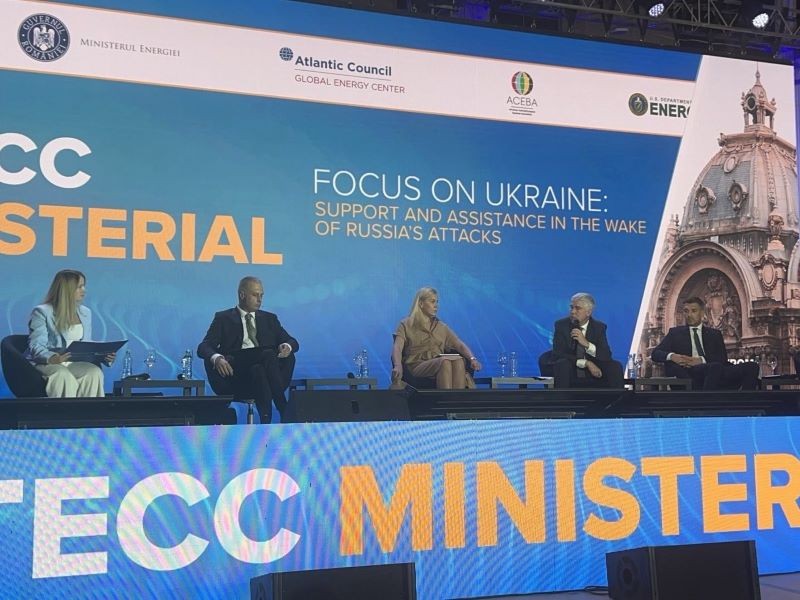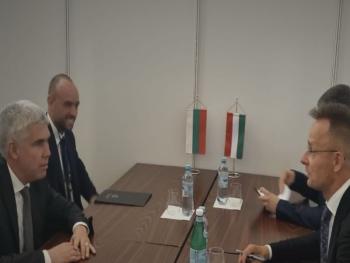Minister Malinov in Bucharest: All aid is vital for rebuilding Ukraine's energy system
“Energy assistance to Ukraine is key to the security of the region. In the coming winter months, the country invaded by Russia will need electricity imports and increased demand spikes prices. In this situation, any assistance to repair Ukraine's energy infrastructure is crucial. Therefore, we are united in supporting Ukraine's economy and population.” That is what Energy Minister Vladimir Malinov said at the Fifth Ministerial Meeting of the Transatlantic Energy and Climate Cooperation Partnership (P-TECC), held in the capital of Romania, Bucharest. Minister Malinov highlighted the priority of regional cooperation and the EU and U.S. assistance that could enable a successful response to the challenges that Kiev is facing. “In this respect, Bulgaria is working hard at ENTSO-E level to achieve solidarity and support for the upcoming winter season and in the long term as well,” Bulgarian Energy Minister said. He focused on the efforts to increase the capacity of the transmission system to ensure energy security.
The need for full diversification of Russian fossil fuels for EU countries and the Energy Community was another emphasis in Minister Malinov's speech at the forum. He underlined the common goal to achieve full independence of European economies from the Russian Federation in this respect by 2027. In addition, the Energy Minister underlined the need to utilize the frozen Russian assets to rebuild Ukraine.
Minister Malinov recalled the progress made in the sale of the Belene nuclear power plant equipment to the Ukrainian side. "Our Ukrainian partners have verified the state of the equipment on site and we are currently working on agreement of transfer of ownership. In a few years, the project in Ukraine could be completed,” Minister Malinov said.
During the P-TECC forum, Minister Malinov spoke with the Hungarian Minister of Foreign Affairs Péter Szijjártó and Romanian Energy Minister Sebastian Burduja. Bulgaria's key role in addressing the challenges of diversification and security of energy supply was the focus of the discussions at both meetings. Participants stressed that Bulgaria is of great importance for the supply of natural gas to Hungary and Romania. “In this context, our country will play a greater role in the future with the implementation of the Vertical Gas Corridor project, a strategic initiative to enhance security of gas supply throughout the region,” Minister Malinov noted.
During a conversation with the Hungarian Foreign Minister Szijjártó, the Bulgarian Energy Minister shared his understanding of the difficulties of the Hungarian side in obtaining crude oil. Minister Malinov said the European Commission should join efforts to create the necessary infrastructure, including for transporting crude oil from alternative sources, to guarantee energy supply. In this respect, he took the commitment that Bulgaria will assist Hungary in the process of identifying potential infrastructure for diversification of crude oil supplies. It was noted that Bulgaria currently does not have infrastructure to transport crude oil to neighbouring and other markets.
The Transatlantic Energy and Climate Cooperation Partnership (P-TECC) is established within the framework of the Three Seas Initiative. Its main objectives are to assist the South East European countries in improving energy security and diversifying energy sources through investments in the infrastructure, increasing interconnectivity and transmission network compatibility. These issues are also part of the priorities of the Republic of Bulgaria in the energy sector.



